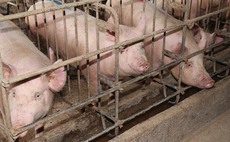Brexit Hub
Farm Business
A farmer has set out three ways he believes the UK Government can protect food production standards without banning low standard imports.
Arable
Breaking away from restrictive EU rules on gene editing should be a no-brainer for Government, and we have provided a means to do this through the Agriculture Bill, says Julian Sturdy MP, chair of the Science and Technology in Agriculture APPG.
Arable
The House of Lords has an opportunity to ensure our production standards are protected in the Agriculture Bill, and it must, because we cannot afford to get this piece of legislation wrong, says Martin Lines, chairman of the Nature Friendly Farming Network.
Arable
A battle is currently taking place over whether the UK’s iconic regional foods will be protected in the EU after Brexit, and this is one fight we must win, says Jackie Evans, managing director of agriculture and land management at ADAS.
Arable
The Agriculture Bill provided an opportunity to make empty shelves and empty stomachs a thing of the past, but it is an opportunity missed, says Luke Pollard, Labour’s Shadow Defra Secretary.
Arable
North East MSP Mike Rumbles has called for changes to be made to the Scottish Agriculture Bill to limit Ministers’ power over future policy.
Farm Business
With the final take-up of the Pick For Britain scheme patchy, Government must come up with a ‘Plan B’ to ensure growers can continue to access enough labour after Brexit, says Daniel Zeichner, Labour’s Shadow Farming Minister.
Arable
The Scottish Agriculture Bill needs a sunset clause to stop Ministers being able to change policy without scrutiny over the coming decades, says Mike Rumbles, MSP for the North East of Scotland.
Arable
Banning imports is an impractical and probably illegal idea which was always doomed to fail, but there are other ways to protect our domestic food standards, says Cambridgeshire Fens farmer Tom Clarke.
Arable
In promising to uphold the UK’s high food production standards, but refusing to explain how, the Government has displayed a failure of imagination on post-Brexit trade policy, says Tom Lancaster, acting head of land, seas and climate policy at the RSPB.


 08 June 2020
•
2 min read
08 June 2020
•
2 min read









